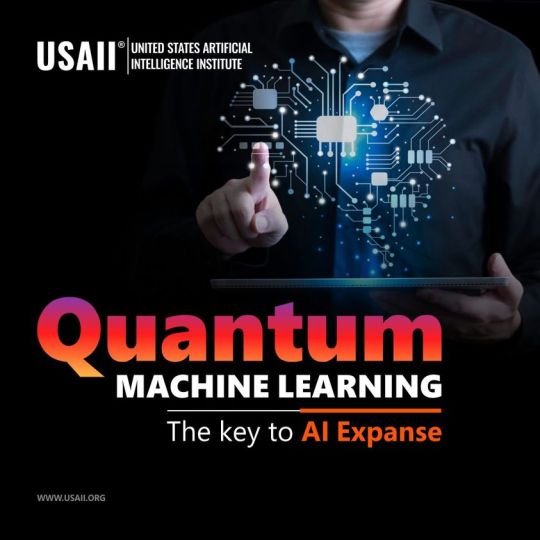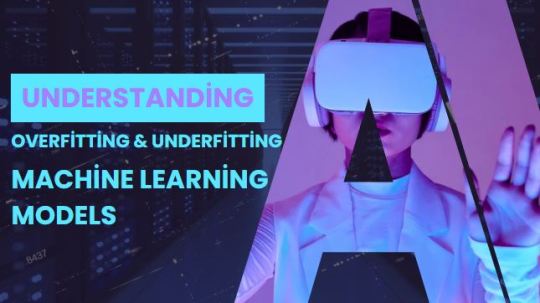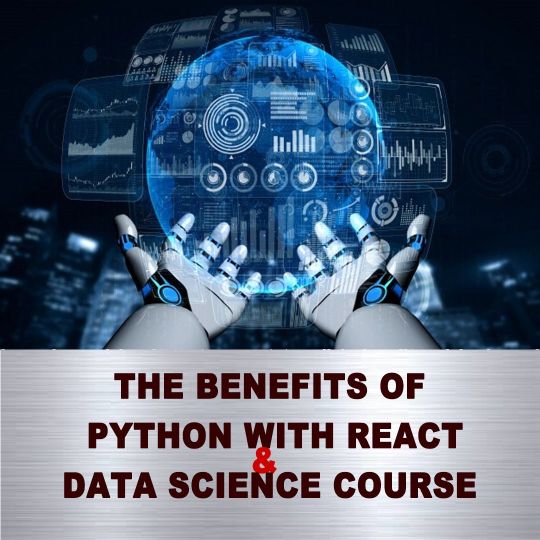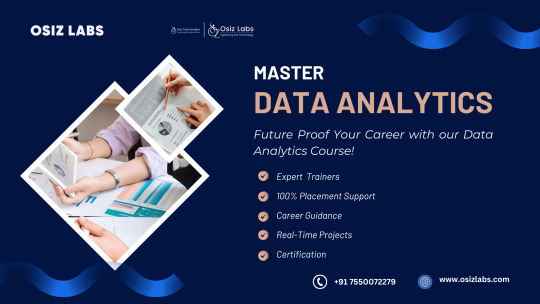#best AI ML certifications
Explore tagged Tumblr posts
Text

Comprehensive Guide to Quantum Machine Learning | USAII®
Stay ahead of the curve with AI/ML certifications that include #QuantumMachineLearning. Prepare yourself for the next big thing in computing. Explore the exciting field that combines quantum mechanics and AI.
Read more: https://shorturl.at/cnIOV
Quantum Machine Learning, Quantum Computing, Quantum Machine Learning, Quantum datasets, Quantum Algorithms, machine learning algorithms, Machine learning certifications, quantum reinforcement learning, machine learning in quantum computing
0 notes
Text
Artificial Intelligence Course in Delhi
Unlock the Power of Data: Master Data Science Course in Delhi Today! Advance your career with Boston Institute of Analytics' premier Artificial Intelligence Course in Delhi!
#Best Data Science Course in Delhi#Artificial Intelligence Course in Delhi#Data Science Course Training in Delhi#AI and ML Courses in Delhi#AI Certificate Programs in Delhi#Best Data Science Institute in Delhi
0 notes
Text
Artificial Intelligence and Machine Learning Courses in Bangalore: A Guide to Advancing Your Career

#Artificial Intelligence courses#Top AI courses#AI and machine learning programs#AI certification Bangalore#Best machine learning institutes#Machine learning certification#Career in Artificial Intelligence#AI and ML Courses
1 note
·
View note
Text
Understanding Overfitting and Underfitting in Machine Learning Models

Overfitting and underfitting are pivotal challenges in machine learning, impacting the accuracy and reliability of predictive models. Overfitting occurs when a model becomes overly complex, memorizing the training data and its noise rather than learning general patterns, leading to poor performance on unseen data. On the other hand, underfitting arises when a model is too simplistic, failing to capture the underlying structure of the data, resulting in subpar performance on both training and validation datasets.
Achieving the right balance involves strategies like regularization, cross-validation, feature engineering, and careful monitoring of training progress. These techniques ensure models generalize effectively, making them robust and reliable for real-world applications. Mastering these concepts is essential for data scientists and engineers aiming to excel in the dynamic field of machine learning.
#ai ml deep learning#artificial intelligence and machine learning course#best course for ai and machine learning#certification for machine learning#machine learning ai deep learning#machine learning for business analytics#machine learning what is#Overfitting Machine Learning Models#Underfitting in Machine Learning Models
0 notes
Text
How To Get A Machine Learning Certification Course Online?
For Quick Enquiry: Click Here

Introduction: Embarking on the Journey to a Machine Learning Certification Course Online
In today's tech-driven world, Machine Learning (ML) has become a game-changer. Whether it's self-driving cars, personalized recommendations, or even your phone's voice assistant, ML is behind it all. Naturally, the demand for professionals skilled in this domain is skyrocketing. For those aiming to break into this field, obtaining a certification is a crucial first step. This is where a comprehensive AI Intelligence Course in Noida can come into play, offering the knowledge and credentials needed to stand out in a competitive job market.
Finding the right online course to get certified in ML can be overwhelming. With so many options out there, how do you choose the one that suits your goals? Do you go for a short-term course or a more intensive one? And what about the credibility of the certification? These are the questions that often swirl in the minds of aspiring ML professionals. Fear not! This blog will guide you through the essential steps to getting a machine learning certification online, making sure you don't get lost in the sea of choices.
In this guide, we will explore how to select the best online Artificial Intelligence Institute In Delhi, understand the prerequisites, and ensure that you gain the right skills to excel in the ML field. If you're looking to jump-start your ML career from the comfort of your home, read on to find out how you can achieve your certification goals efficiently and effectively.
Choosing the Right Machine Learning Certification Course
1. Understanding the Different Types of Machine Learning Courses Available Online
The first step in obtaining a machine learning certification is understanding the different types of courses available online. Machine learning courses can range from beginner to advanced levels, and they often focus on various aspects of ML, such as supervised learning, unsupervised learning, or deep learning.
It's essential to assess your current skill level before enrolling in a course. If you're just starting, look for courses that offer a solid foundation in the basics of machine learning. These introductory courses typically cover essential topics such as linear regression, classification algorithms, and data preprocessing. On the other hand, if you already have some experience, you might want to consider more specialized courses that delve into advanced topics like neural networks or reinforcement learning.
For those aiming to find the best courses, searching for an Artificial Intelligence And Machine Learning Course in Noida online can lead you to well-structured programs tailored to different skill levels. Just like how you wouldn’t dive into deep waters without learning to swim first, starting with the right course level will ensure you build a strong foundation before tackling more complex concepts.
2. Evaluating Course Content, Structure, and Certification Credibility
Once you have a clear understanding of the types of courses available, the next step is to evaluate the course content, structure, and credibility of the certification. A good machine learning certification course should offer a well-rounded curriculum that covers both theoretical concepts and practical applications.
Look for courses that include hands-on projects, case studies, and real-world examples. These elements not only make learning more engaging but also provide practical experience that can be invaluable when applying for jobs. Additionally, ensure that the course offers a recognized certification upon completion. Certification from reputable platforms like Coursera, edX, or Google can add significant value to your resume.
Finding an Artificial Intelligence Institute In Delhi that offers a balance between theory and practice is key to getting the most out of your learning experience. Consider the credibility of the platform and the instructors as well. After all, you wouldn’t want to invest time and money into a course only to find out that the certification holds little weight in the industry.
3. Considering Course Duration, Flexibility, and Cost
Another crucial factor to consider when choosing an online machine learning certification course is the duration, flexibility, and cost. Depending on your current commitments, you may prefer a self-paced course that allows you to study at your own pace or a more structured program with set deadlines. Additionally, the duration of the course can vary significantly, from short-term courses lasting a few weeks to comprehensive programs that take several months to complete.
When searching for an AI Intelligence Course in Noida, make sure to choose one that fits your schedule and budget. While some courses are free, others may require a significant financial investment. It's essential to weigh the cost against the potential benefits of the certification. Remember, just like investing in quality ingredients can lead to a delicious meal, investing in the right course can lead to a successful career in machine learning.
Preparing for the Course and Maximizing Learning
1. Ensuring You Meet the Prerequisites Before Enrolling in the Course
Before diving into an Artificial Intelligence Institute In Delhi, it's crucial to ensure that you meet the prerequisites. Many machine learning courses require a basic understanding of programming, particularly in languages like Python or R, as well as a solid grasp of mathematics, including linear algebra and statistics. If you're new to programming or math, consider taking introductory courses in these subjects before tackling machine learning.

Fulfilling the prerequisites will not only make the learning process smoother but also allow you to get the most out of the course content. Think of it as making sure you have all the ingredients before starting to cook a complicated recipe—you don't want to be halfway through only to realize you're missing something essential.
2. Utilizing Additional Resources to Enhance Your Learning Experience
While a good Artificial Intelligence And Machine Learning Course in Noida will provide you with the necessary knowledge, it's always a good idea to supplement your learning with additional resources. Online communities, forums, and study groups can provide valuable insights and support as you progress through the course. Websites like Stack Overflow, GitHub, and Medium often have articles, tutorials, and discussions that can help you deepen your understanding of machine learning concepts.
In addition to online resources, consider reading books or watching tutorials to reinforce what you've learned. Engaging with different learning formats can help solidify your understanding and provide new perspectives on the material. Just like seasoning a dish enhances its flavor, utilizing additional resources can enrich your learning experience.
3. Gaining Practical Experience Through Projects and Challenges
One of the best ways to solidify your machine-learning knowledge is by applying it to real-world problems. Many online courses include projects as part of the curriculum, but it's also beneficial to seek out additional challenges on your own. Platforms like Kaggle and DrivenData offer competitions and datasets that allow you to test your skills and work on real-world problems.
Participating in these challenges not only helps you gain practical experience but also builds your portfolio, which can be a valuable asset when applying for jobs. If you're enrolled in an AI Intelligence Course in Noida, make sure to take full advantage of any project opportunities and seek out additional challenges to further enhance your skills.
Think of gaining practical experience as the final step in cooking a meal—you've prepared all the ingredients, followed the recipe, and now it's time to taste the finished product. By applying what you've learned to real-world problems, you'll be able to see the fruits of your labor and build the confidence needed to succeed in the field of machine learning.
Conclusion: Achieving Success with Your Machine Learning Certification Online
Embarking on the journey to obtain a machine learning certification online is an exciting and rewarding endeavor. By choosing the right course, evaluating the content, and ensuring it fits your schedule and budget, you set yourself up for success. Once enrolled, meeting the prerequisites and utilizing additional resources can further enhance your learning experience. Finally, gaining practical experience through projects and challenges will solidify your knowledge and provide a strong foundation for your future career in machine learning.
For those in India looking to get certified, enrolling in an Artificial Intelligence And Machine Learning Course in Noida is a valuable step toward becoming a skilled machine learning professional. With determination, continuous learning, and practical application, you'll be well on your way to achieving your certification goals and advancing your career in this dynamic and rapidly evolving field. So go ahead, take the plunge, and start your journey toward machine learning mastery today!
Also Read This:-
Top AI Training Institutes (Call Now @9510860860)
How To Find Out If AI Advancements In Retail Is A Good Career For Me?
#AI Classes#AI Intelligence Course#Artificial Intelligence Classes#Artificial Intelligence Course#Advanced Artificial Intelligence Course#AI Courses#AI Courses Online#Artificial Intelligence Online Course#Learn Artificial Intelligence Online#AI Full Course#Introduction To AI#AI And ML Courses#AI Beginner Course#AI Courses For Beginners#AI Machine Learning Courses#Artificial Intelligence And Machine Learning Course#Artificial Intelligence Course For Beginners#Machine Learning And AI Courses#AI ML Courses#Best Artificial Intelligence Course#Learn AI For Beginners#AI Certification Course#AI Learning Course#Artificial Intelligence Certification#Artificial Intelligence Training#AI Training Courses#Artificial Intelligence Training Institute#Best Artificial Intelligence Course In India#kvch#ArtificialIntelligence
0 notes
Text
The Dos and Don’ts of AI & ML in Digital Marketing

Artificial intelligence (AI) and machine learning (ML) are revolutionizing the digital marketing landscape, offering unprecedented opportunities for personalization, automation, and optimization. However, like any powerful tool, AI and ML must be wielded wisely. This blog outlines the dos and don'ts of leveraging these technologies effectively in your digital marketing strategies.
The Dos:
Do Define Clear Objectives: Before implementing any AI/ML solution, clearly define your marketing goals. What are you trying to achieve? Increased conversions? Improved customer engagement? Specific objectives will guide your AI/ML strategy and ensure you're measuring the right metrics.
Do Focus on Data Quality: AI/ML algorithms are only as good as the data they are trained on. Prioritize collecting clean, accurate, and relevant data. Invest in data cleansing and validation processes to ensure the reliability of your AI-driven insights.
Do Start Small and Iterate: Don't try to implement everything at once. Begin with a specific use case, such as automating social media posting or personalizing email campaigns. Test, refine, and iterate on your approach before scaling up.
Do Prioritize Personalization: AI/ML excels at personalization. Leverage these technologies to create tailored content, product recommendations, and offers for individual customers based on their behavior, preferences, and demographics.
Do Embrace Automation: AI can automate repetitive tasks, freeing up marketers to focus on strategic initiatives. Identify areas where AI can streamline workflows, such as ad campaign optimization, content curation, or customer service interactions.
Do Focus on Transparency and Explainability: Understand how your AI/ML models work and ensure they are transparent and explainable. This is crucial for building trust and addressing ethical concerns.
Do Measure and Analyze Results: Track the performance of your AI/ML-driven marketing campaigns and analyze the data to identify areas for improvement. Use data to inform your decisions and optimize your strategies.
Do Stay Updated: The field of AI/ML is constantly evolving. Keep up with the latest advancements, new tools, and best practices to ensure you're maximizing the potential of these technologies.
The Don'ts:
Don't Treat AI as a Magic Bullet: AI/ML is a powerful tool, but it's not a magic solution. It requires careful planning, implementation, and ongoing management. Don't expect overnight results without putting in the effort.
Don't Neglect Human Oversight: While AI can automate tasks, it's essential to maintain human oversight. Human judgment is still crucial for strategic decision-making, creative development, and ethical considerations.
Don't Over-Rely on Automation: While automation is beneficial, don't over-automate to the point where you lose the human touch. Maintain a balance between automation and human interaction to ensure a personalized and engaging customer experience.
Don't Ignore Ethical Implications: AI/ML raises ethical concerns about data privacy, bias, and transparency. Be mindful of these issues and ensure that your AI-driven marketing practices are ethical and responsible.
Don't Forget About Data Security: Protecting customer data is paramount. Implement robust security measures to safeguard your data from unauthorized access and breaches.
Don't Be Afraid to Experiment: AI/ML is a field of experimentation. Don't be afraid to try new approaches, test different algorithms, and learn from your mistakes.
Don't Underestimate the Importance of Training: Proper training is essential for effectively using AI/ML tools and understanding their capabilities and limitations. Invest in training for your marketing team to ensure they have the skills they need to succeed.
Digital Marketing & AI Certification Program: Your Path to AI-Powered Marketing Mastery
Want to become a sought-after digital marketing professional with expertise in AI and ML? Consider enrolling in a Digital Marketing & AI Certification Program. These programs provide comprehensive training on the latest AI/ML tools and techniques, preparing you to leverage the power of these technologies in your marketing strategies. You'll learn how to:
Develop and implement AI/ML-driven marketing campaigns.
Analyze data and generate actionable insights.
Choose and use the right AI/ML marketing tools.
Address ethical considerations related to AI/ML in marketing.
Conclusion:
AI and ML are transforming the landscape of digital marketing, offering unprecedented opportunities for growth and innovation. By following these dos and don'ts, marketers can harness the power of these technologies effectively and responsibly, driving better results and achieving their marketing goals. The future of digital marketing is intelligent, and it's powered by AI and ML.
#technology#artificial intelligence#online course#ai#marketing#digital marketing#ai in digital marketing
4 notes
·
View notes
Text
Exploring DeepSeek and the Best AI Certifications to Boost Your Career
Understanding DeepSeek: A Rising AI Powerhouse
DeepSeek is an emerging player in the artificial intelligence (AI) landscape, specializing in large language models (LLMs) and cutting-edge AI research. As a significant competitor to OpenAI, Google DeepMind, and Anthropic, DeepSeek is pushing the boundaries of AI by developing powerful models tailored for natural language processing, generative AI, and real-world business applications.
With the AI revolution reshaping industries, professionals and students alike must stay ahead by acquiring recognized certifications that validate their skills and knowledge in AI, machine learning, and data science.
Why AI Certifications Matter
AI certifications offer several advantages, such as:
Enhanced Career Opportunities: Certifications validate your expertise and make you more attractive to employers.
Skill Development: Structured courses ensure you gain hands-on experience with AI tools and frameworks.
Higher Salary Potential: AI professionals with recognized certifications often command higher salaries than non-certified peers.
Networking Opportunities: Many AI certification programs connect you with industry experts and like-minded professionals.
Top AI Certifications to Consider
If you are looking to break into AI or upskill, consider the following AI certifications:
1. AICerts – AI Certification Authority
AICerts is a recognized certification body specializing in AI, machine learning, and data science.
It offers industry-recognized credentials that validate your AI proficiency.
Suitable for both beginners and advanced professionals.
2. Google Professional Machine Learning Engineer
Offered by Google Cloud, this certification demonstrates expertise in designing, building, and productionizing machine learning models.
Best for those who work with TensorFlow and Google Cloud AI tools.
3. IBM AI Engineering Professional Certificate
Covers deep learning, machine learning, and AI concepts.
Hands-on projects with TensorFlow, PyTorch, and SciKit-Learn.
4. Microsoft Certified: Azure AI Engineer Associate
Designed for professionals using Azure AI services to develop AI solutions.
Covers cognitive services, machine learning models, and NLP applications.
5. DeepLearning.AI TensorFlow Developer Certificate
Best for those looking to specialize in TensorFlow-based AI development.
Ideal for deep learning practitioners.
6. AWS Certified Machine Learning – Specialty
Focuses on AI and ML applications in AWS environments.
Includes model tuning, data engineering, and deep learning concepts.
7. MIT Professional Certificate in Machine Learning & Artificial Intelligence
A rigorous program by MIT covering AI fundamentals, neural networks, and deep learning.
Ideal for professionals aiming for academic and research-based AI careers.
Choosing the Right AI Certification
Selecting the right certification depends on your career goals, experience level, and preferred AI ecosystem (Google Cloud, AWS, or Azure). If you are a beginner, starting with AICerts, IBM, or DeepLearning.AI is recommended. For professionals looking for specialization, cloud-based AI certifications like Google, AWS, or Microsoft are ideal.
With AI shaping the future, staying certified and skilled will give you a competitive edge in the job market. Invest in your learning today and take your AI career to the next leve
3 notes
·
View notes
Text
Python - IT Course for Your Career Growth

Python programming is the most promising job path in technology and business. Python job prospects are expanding rapidly on a global basis. Python is popular among large corporations due to its concise programming and quick readability. Python is an excellent tool for developing novel ideas. The number of candidates interested in Python is increasing on a daily basis.
What is Python Development?
Python is a high-level, object-oriented programming language used to create a wide range of desktop applications, systems, websites, and platforms. Although it is not the most extensively used language in the technology world, it is without a doubt the best choice for novices and learners.
Python Language Programming Scope:
Python is a multi-programming language since it includes all of the most recent programming features, such as C and C++. It is still the best language for swiftly developing applications.
AI and ML's preferred language
It includes a comprehensive collection of Library Tools.
A wide range of community services are available.
Better Code Readability Design
Python is a free and open programming language that enables multi-program paradigms.
Python collaborates with a wide range of programmes that specialise in machine language, the language of choice for artificial intelligence.
Python Career Opportunities
There are also numerous opportunities for newbies in the Python field. Python can help you advance your career if you approach it with the right perspective. You must have solid programming and problem-solving skills. Despite the fact that the Python course has a simple syntax, new pupils dislike it. It is straightforward to grasp, allowing newcomers to transition from another language to Python. Python programmers are in high demand in India.
Python language may pay between 3 and 5 lakhs a year for a fresher, and you can enroll in an advanced certification program in Python Development for a lucrative career.
Why Should You Choose SkillIQ for Python Training in Ahmedabad?
Choose SkillIQ for Python training and certification. SkillIQ, a professional IT training institute and incubator, provides information technology training to students, interns, new recruits, and others interested in pursuing careers in the IT business. They may improve their IT skills and perform well while working. Through internships and online training, we have designed professional training programmes for students and interns who have the necessary qualifications and real-world experience. The best and most experienced team of mentors from the actual world trains applicants using professional programmes and cutting-edge teaching methodologies.
https://www.skilliq.co.in/blog/python-training-in-india/
For detailed inquiry Contact us on: +91 7600 7800 67 / +91 7777-997-894 Email us at: [email protected]
#python training#python course#python certification#python training in Ahmedabad#python institute#best python course
1 note
·
View note
Text
Unlocking Data Analytics Careers in Jaipur

Introduction
Jaipur, known for its cultural heritage, is fast becoming a growing tech hub, offering numerous career opportunities in data analytics. As businesses increasingly rely on data-driven decision-making, the demand for skilled professionals in data analytics jobs in Jaipur has surged. Whether you're a fresher looking to start your career or an experienced professional aiming to upskill, the data analytics industry in Jaipur has something for everyone.
In this article, we’ll explore the best data analytics roles, the skills required, job opportunities, and how Salarite can help you land your dream job.
Why Pursue a Career in Data Analytics?
The data analytics industry has witnessed significant growth due to:
✔ Rising Demand Across Industries – From finance, healthcare, IT, retail, and marketing, companies are actively hiring data analysts to optimize operations. ✔ High-Paying Jobs – The average salary for a data analyst job in Jaipur ranges from ₹3.5 LPA to ₹12 LPA, depending on experience and expertise. ✔ Diverse Career Paths – Whether you want to become a Data Analyst, Business Analyst, Power BI Developer, or Data Scientist, multiple career options are available. ✔ Growing Startups & MSMEs in Jaipur – The city is home to a rising number of startups actively hiring data analytics professionals to drive their business strategies.
Top Data Analytics Roles in Jaipur
Jaipur offers data analytics jobs across different experience levels. Here are the most in-demand roles:
1. Data Analyst
🔹 Role: Analyze large datasets, generate insights, and prepare reports for business decision-making. 🔹 Key Skills: SQL, Python, Excel, Power BI, Tableau, Data Visualization 🔹 Industries: E-commerce, Retail, Banking, Healthcare
2. Business Analyst
🔹 Role: Bridge the gap between IT and business teams by analyzing trends and improving business efficiency. 🔹 Key Skills: Data Analysis, Business Intelligence, SQL, Agile Methodology 🔹 Industries: Finance, IT, Supply Chain, Consulting
3. Power BI Developer
🔹 Role: Design interactive dashboards and reports to help businesses track performance. 🔹 Key Skills: Power BI, DAX, Data Modeling, SQL 🔹 Industries: Digital Marketing, Manufacturing, IT Services
4. Data Scientist
🔹 Role: Build predictive models, work with AI/ML algorithms, and analyze unstructured data. 🔹 Key Skills: Python, Machine Learning, TensorFlow, Deep Learning 🔹 Industries: FinTech, Healthcare, Research
5. Data Engineer
🔹 Role: Develop data pipelines and optimize data storage solutions. 🔹 Key Skills: Big Data, Hadoop, Apache Spark, SQL, AWS 🔹 Industries: Cloud Computing, AI, E-commerce
These roles highlight the diverse career opportunities available in data analytics jobs in Jaipur.
Essential Skills for Data Analytics Jobs
To succeed in data analytics roles in Jaipur, mastering the following skills is crucial:
Technical Skills
✅ Python & R Programming – Essential for data processing and statistical analysis. ✅ SQL & Database Management – Helps retrieve and manipulate structured data efficiently. ✅ Power BI & Tableau – Used for data visualization and interactive dashboards. ✅ Excel & Google Sheets – Fundamental for data handling and reporting. ✅ Machine Learning & AI – Advanced analytics techniques for predictive modeling. ✅ Big Data Technologies (Hadoop, Spark, AWS) – Essential for handling large-scale data processing.
Soft Skills
✔ Analytical Thinking – Ability to derive insights from complex datasets. ✔ Problem-Solving – Using data to address real-world business challenges. ✔ Communication & Storytelling – Presenting insights clearly to non-technical stakeholders.
By honing these data analytics skills, you can significantly increase your chances of securing a data analytics job in Jaipur.
How to Land a Data Analytics Job in Jaipur?
1. Build a Strong Resume
Highlight your data analytics skills, projects, and certifications.
Customize your resume for each job application.
Showcase your expertise in Power BI, SQL, Python, and Data Visualization.
2. Gain Hands-on Experience
Work on real-world projects using datasets from Kaggle.
Contribute to GitHub repositories with data analytics solutions.
Take internships in data analytics to build industry experience.
3. Get Certified
Google Data Analytics Professional Certificate
Microsoft Power BI Certification
IBM Data Science Certificate
Coursera & Udemy Data Analytics Courses
4. Network & Apply for Jobs
Attend tech meetups and data analytics events in Jaipur.
Engage with recruiters and professionals on LinkedIn.
Apply for data analytics jobs on platforms like Salarite.
Why Choose Salarite for Data Analytics Jobs in Jaipur?
Salarite is one of the best platforms for freshers and experienced professionals looking for data analytics jobs in Jaipur. Here’s why:
✅ Exclusive Job Listings – Find top openings in data analytics, Power BI, and business intelligence. ✅ Direct Hiring by Startups & MSMEs – Connect with Jaipur-based companies offering data analytics jobs. ✅ Skill-Based Job Matches – Get job recommendations based on your skills in SQL, Python, and Power BI. ✅ Internships & Entry-Level Roles – Ideal for freshers looking to gain practical experience. ✅ Easy Application Process – Apply seamlessly for roles in data analytics, business analytics, and Power BI development.
🔗 Visit Salarite Today! Salarite – Data Analytics Jobs in Jaipur
Conclusion
The data analytics industry in Jaipur is thriving, offering immense opportunities for job seekers. Whether you’re starting fresh or looking to upskill, Jaipur has plenty of data analytics jobs across startups, IT firms, and MSMEs.
By focusing on essential skills, hands-on experience, and networking, you can successfully land a data analytics job in Jaipur. Platforms like Salarite make the job search process easier by connecting candidates with top employers.
Start your journey today and unlock endless possibilities in data analytics careers in Jaipur! 🚀
0 notes
Text
If you're looking to pursue a career with great work-life balance, choosing the right country for your education is key! 🌍✨ Here’s a breakdown of the best countries to study for each profession:
📊 Data Scientist – USA, Canada, Germany (Best courses: MS in Data Science, AI & ML) 🎨 UX Designer – UK, Sweden, Netherlands (Best courses: Human-Computer Interaction, UX/UI Design) 📋 Project Manager – Australia, Canada, Germany (Best courses: MBA in Project Management, PMP Certification) 📚 Librarian – USA, UK, Australia (Best courses: Master’s in Library & Information Science) 📈 Actuary – USA, UK, Canada (Best courses: Actuarial Science, Financial Risk Management) 📝 Technical Writer – USA, Germany, UK (Best courses: English, Communications, Technical Writing) 🏋️ Physical Therapist – USA, Canada, Australia (Best courses: Doctor of Physical Therapy, MSc in Physiotherapy)
Each of these countries provides world-class education, great career prospects, and high salaries in these fields! 🌟 Want to know more? Drop a comment! ⬇️💬
0 notes
Text
The Benefits of Python with React & Data Science Course: A Comprehensive Guide

This course opens the doors to high-demand roles across various industries. Some of the prominent career paths include: The tech industry is constantly evolving, with new tools and frameworks shaping the way we build software and analyse data. Among these, Python, React, and Data Science have emerged as critical skills that define the future of technology. Enrolling in a Python with React & Data Science course equips you with the expertise to excel in this ever-competitive industry.
If you're looking for the best training to master these technologies, Right Soft Options, the No.1 software training institute in Kochi and Kerala, is the perfect destination. Let's explore how this course can prepare you for a bright future in tech.
1. Why Python Is a Game-Changer
Python is one of the most versatile programming languages in the world. Known for its simplicity and readability, it is the first choice for beginners and seasoned developers alike.
Core Benefits: Python powers applications across web development, artificial intelligence, and automation. Its flexibility ensures relevance across various industries.
In Demand Across Industries: From healthcare to finance, Python is used in data-driven decision-making and the automation of processes, making it an essential skill for professionals.
2. React: Revolutionizing Front-End Development
React, a JavaScript library developed by Facebook, is widely used for building modern and interactive web applications.
Why Learn React? Reacts component-based architecture simplifies the development of user-friendly interfaces, making it ideal for projects of all sizes.
Industry Adoption: React is favoured by top companies, ensuring that skilled React developers are always in high demand.
3. Data Science: The Future of Technology
Data is the backbone of today's business landscape, and data science provides the tools to harness its power.
What Makes Data Science Critical? Data science enables businesses to uncover insights, make informed decisions, and optimize operations.
Key Applications: Predictive analytics, customer behaviour analysis, and AI-driven solutions are just a few areas where data science is making waves.
4. The Unique Combination of Python, React, and Data Science
This course brings together the best of three worlds—Python's versatility, Reacts front-end prowess, and the transformative potential of data science.
Benefits of the Combined Skill Set:
Design engaging web interfaces with React.
Analyse and interpret data using Python and data science techniques.
Bridge the gap between web development and data analytics.
Versatile Career Options: Mastering this combination prepares you for roles such as Full-Stack Developer, Data Scientist, AI Specialist, and more.
5. Why Choose Right Soft Options?
Right Soft Options is the best software training institute in Kochi, known for delivering comprehensive courses designed to prepare students for the tech industry's demands.
Expert Faculty: Learn from experienced trainers who bring real-world expertise to the classroom.
Government-Approved Certification: Gain a globally recognized credential to enhance your resume.
Placement Support: With 2500+ successful placements, the institute ensures that students secure jobs with top companies.
Flexible Learning Options: Both online and offline classes are available to suit diverse learning preferences.
Whether you're starting your tech journey or looking to upgrade your skills, Right Soft Options provides the right environment for success.
6. Career Opportunities After Completing This Course
Data Scientist: Leverage Python and data science to analyse datasets and build predictive models.
Full-Stack Developer: Use React for front-end development and Python for back-end logic.
AI/ML Engineer: Design intelligent systems that learn and adapt using Python.
Business Analyst: Interpret complex data to drive strategic business decisions.
The growing demand for professionals with this skill set ensures lucrative career prospects and job stability.
7. How This Course Prepares You for the Future
By integrating hands-on learning with real-world projects, the Python with React & Data Science course at Right Soft Options prepares you to tackle the challenges of the tech industry.
Real-World Projects: Work on practical assignments to gain experience in real-world scenarios.
Skill Mastery: From coding in Python to creating interactive dashboards and analysing data, the course covers every essential aspect.
Industry-Relevant Training: Learn skills that are in demand in today’s tech-driven world.
Conclusion
The Python with React & Data Science course is a transformative program designed for those looking to stay ahead in the tech industry. By mastering these critical technologies, you position yourself as a versatile and in-demand professional.
When you choose Right Soft Options, the No.1 software training institute in Kochi, you gain access to expert training, placement opportunities, and a supportive learning environment. Don’t wait—take the first step toward a successful tech career today.
Visit https://rightsoftoptions.com/ to enroll now!
0 notes
Text
Meta’s Newfangled ML Language Model and Its AI Capabilities | Best AI ML Certification | USAII®
Meta’s LLaMA is the talk of the town for AI professionals the world over, owing to its potential to make technology seamlessly handy for researchers and revolutionize the large language model landscape. Let us explore AI capabilities in depth!
Read More: https://bit.ly/3p2qTJj
Machine Learning Language Model, ChatGPT, Large Language Models, llm machine learning, llm deep learning, nlp ml model, llm language model, ai lamda, Linguistic Model for Dialogue Applications (LaMDA), AI technology, top AI and ML certification, machine learning gpt, deep learning nlp models, ml nlp models, machine learning certification
0 notes
Text
Top Certification Courses to Advance Your Career in 2025

The job market in 2025 is going to be tougher than ever. If you want to stand out and land better opportunities, certification courses are your best friend. They not only show off your skills but also make sure you're up-to-date with the latest trends in your field.
Thanks to platforms like Guruface, it’s now super easy to learn online and get certified in the most in-demand fields. Whether you're aiming to climb the career ladder or switch to a new industry, let’s explore the best certification courses you can take to get ahead.
Why Certifications Are a Game-Changer
Think of certifications as proof of your expertise. They:
Make your resume stand out.
Help you negotiate better pay.
Open doors to promotions or new jobs.
But that’s not all. Certifications keep you competitive, especially in tech-driven industries like IT, cybersecurity, data science, and cloud computing.
With platforms like Guruface, you can get certified without worrying about juggling work, life, and studies. Guruface offers flexible, self-paced courses that fit into your schedule.
The Best Certification Courses for 2025
1. Project Management Certification
Good project managers are always in demand. Certifications like PMP (Project Management Professional) and PRINCE2 help you lead projects, manage teams, and deliver results.
Why it’s great: These certifications show you can handle complex projects, making you a valuable hire.
At Guruface, you’ll get all the resources you need to pass your project management certification on your first try.
2. Cybersecurity Certification
With data breaches and hacking on the rise, cybersecurity is a hot career choice. Certifications like Certified Ethical Hacker (CEH) and CompTIA Security+ teach you how to secure networks and stop cyberattacks.
Why it’s great: Businesses need experts to protect their systems, and they’re willing to pay top dollar for it.
Guruface’s courses break down complex concepts into simple lessons, making it easier to master cybersecurity skills.
3. Cloud Computing Certification
More companies are moving their operations to the cloud, creating a huge demand for certified cloud professionals. Certifications like AWS Certified Solutions Architect and Microsoft Azure Fundamentals prove you can manage cloud systems efficiently.
Why it’s great: These skills make you a go-to expert for companies upgrading their tech.
With Guruface, you’ll learn the ins and outs of cloud computing through interactive lessons and hands-on projects.
4. Data Science and AI Certification

Data is the backbone of decision-making in almost every industry. Certifications in Google Data Analytics or AI/ML (Artificial Intelligence/Machine Learning) teach you how to analyze data and build smart systems.
Why it’s great: These are high-paying, high-growth roles that are shaping the future.
Guruface offers easy-to-follow data science and AI courses with real-world examples, so you can learn by doing.
5. IT Certifications

From troubleshooting networks to managing IT systems, certifications like CompTIA Network+ and CCNA (Cisco Certified Network Associate) are perfect for IT professionals.
Why it’s great: These certifications are the foundation of a solid IT career.
Guruface helps you master the technical skills needed to excel in these roles with clear, step-by-step guidance.
6. Digital Marketing Certifications
Digital marketing is booming, and companies need experts to manage SEO, social media, and ads. Certifications like Google Ads Certification and Digital Marketing Specialist give you the skills to run successful campaigns.
Why it’s great: Digital marketing is essential for businesses, and skilled marketers are always in demand.
With Guruface, you can learn marketing strategies that get real results for clients or your own business.
7. Software Development Certifications
If you love coding, certifications like Certified Java Programmer or Full-Stack Developer Certification are great options. They teach you how to build apps, websites, and software systems.
Why it’s great: Coding is a universal skill that opens up endless career possibilities.
Guruface offers beginner-friendly and advanced programming courses, so you can start wherever you’re comfortable.
How to Choose the Right Certification
Choosing the right certification can be overwhelming, but here’s how to simplify it:

Know your goals: Are you switching careers or growing in your current one?
Check industry trends: Look for certifications that are in demand in your field.
Find flexible options: Platforms like Guruface let you learn at your own pace.
Start small: If you're new, begin with foundational courses and build up.
Why Guruface Is Your Best Bet
Guruface isn’t just another online platform—it’s a complete solution for learners. Here’s why thousands trust it:
Affordable and Accessible: Learn from anywhere without breaking the bank.
Expert-Led Courses: Get trained by professionals who’ve been there and done that.
Community Support: Join a network of learners and mentors to stay motivated.
From mock exams to interactive lessons, Guruface makes sure you succeed not just in the course but in your career.
Ready to Level Up?
Investing in certification courses is the smartest career move you can make in 2025. With platforms like Guruface, learning is convenient, effective, and tailored to your needs.
So, what are you waiting for? Explore Guruface’s courses today and take the first step toward a brighter, better career. Your future self will thank you!
0 notes
Text
AWS Partner Highlights: Driving Innovation and Success in the Cloud
In today’s rapidly evolving digital era, businesses in Australia and New Zealand are increasingly embracing cloud technology to foster growth, streamline operations, and maintain a competitive edge. At the heart of this transformation is Amazon Web Services (AWS), which offers a comprehensive suite of cloud solutions to meet diverse business needs. AWS-certified partners, like Peritos Solutions, play a pivotal role by providing specialized expertise, tailored strategies, and innovative approaches to manage AWS workloads seamlessly.
If you’re looking to optimize your cloud strategy, choosing AWS consulting services in Sydney or leveraging AWS cloud consultants in Australia can be the key to unlocking unparalleled growth and operational excellence.
What Are AWS Partners?
AWS partners are organizations officially recognized by AWS for their expertise in delivering cloud-based solutions and services. They are categorized into tiers such as Registered, Advanced, and Premier, based on their technical competencies, certifications, and proven track records in leveraging AWS technologies.
These partners help businesses access AWS’s powerful ecosystem, enabling them to design and implement customized solutions that enhance operational efficiency, improve security, and reduce costs.
Why Choose an AWS Partner?
AWS consulting partners offer significant advantages for businesses, ensuring a smooth transition to the cloud and delivering measurable outcomes. Here’s why you should consider working with AWS cloud consultants in Australia:
1. Expertise and Knowledge
AWS consultants in Sydney and across Australia bring in-depth expertise in AWS services, enabling businesses to craft efficient and scalable cloud strategies. By leveraging best practices and their extensive experience, AWS partners ensure your cloud infrastructure aligns perfectly with your business objectives.
2. Customized Cloud Solutions
Whether you’re setting up an AWS landing zone, optimizing cloud resources, or integrating complex services, AWS consulting experts design tailored solutions that fit your unique requirements. From disaster recovery (DR) to one-touch backup and advanced workload management, AWS consultants provide end-to-end support to help your business thrive.
3. Cost Optimization
Cost-efficiency is a cornerstone of AWS consulting. With specialized knowledge of AWS pricing models, consultants help businesses in Australia and New Zealand reduce unnecessary expenses while maximizing their return on investment. Services like AWS cost optimization ensure you leverage the cloud effectively without exceeding your budget.
4. Accelerated Time to Market
AWS consultants speed up cloud solution deployment, enabling businesses to launch their products and services faster. Whether you’re migrating to AWS for the first time or expanding existing workloads, these partners ensure a seamless integration process.
5. Access to Cutting-Edge Innovations
As trusted AWS partners, consultants often gain early access to the latest AWS services and features. This allows businesses to adopt innovative technologies, such as AI/ML, ensuring they stay ahead of the competition.
AWS Partner Highlights
AWS partners showcase their strengths through a variety of services and competencies. Here’s how they stand out:
Advanced Security Solutions
AWS-certified consultants implement robust security measures tailored to meet industry-specific requirements. From enhanced data protection to compliance management, businesses in Sydney, Melbourne, and beyond can trust AWS partners to safeguard their operations.
Industry-Specific Expertise
Many AWS partners develop solutions tailored to industries like healthcare, retail, and finance, addressing their unique challenges. This specialized approach ensures businesses receive solutions designed for their operational goals.
Migration Success Stories
AWS partners excel in migrating large-scale applications to AWS with minimal disruption. Whether you’re starting fresh or expanding existing AWS workloads, consultants like Peritos Solutions ensure seamless migrations with services like AWS landing zone setup, backup solutions, and disaster recovery.
Recognitions and Awards
AWS partners are often recognized for their excellence in delivering cloud solutions. Peritos Solutions, for instance, has achieved numerous accolades, including being an AWS Well-Architected Partner, an AWS EC2 for Windows Service Delivery Partner, and an AWS Lambda Delivery Partner.
Funding Options and Credits for Cloud Adoption
Beyond technical expertise, AWS partners offer businesses a variety of funding programs to accelerate cloud adoption. These programs include:
Greenfield Customer Incentives: Support for building innovative cloud solutions from scratch.
POC Funding: Low-commitment Proof of Concept opportunities to assess AWS solutions.
Free Cloud Assessment + Migration Funding: Assistance with migration from on-premise environments to AWS at no cost.
Gen AI Exclusive Funding: Funding for businesses scaling AI/ML use cases.
Well-Architected Assessment Credits: Optimize and secure your existing infrastructure while earning AWS credits.
How Peritos Solutions Can Help
As an Advanced Tier AWS Partner, Peritos Solutions delivers top-notch AWS consulting in Sydney, Brisbane, Melbourne, and across Australia and New Zealand. Our team of expert AWS cloud consultants collaborates with businesses to design scalable cloud strategies, optimize workloads, and ensure business continuity with robust backup and DR solutions.
We specialize in AWS’s core competencies, including AWS EC2 for Windows, AWS Lambda, and AWS DevOps, offering unmatched expertise to help your business succeed. With our AWS Partner Network (APN) recognition, you can trust us to deliver innovative cloud solutions tailored to your needs.
Conclusion
AWS partners are instrumental in driving innovation and enabling businesses to maximize the potential of cloud technology. By choosing expert AWS consulting in Sydney or partnering with AWS cloud consultants in Australia, businesses can achieve operational efficiency, cost savings, and sustained growth.
At Peritos Solutions, we’re committed to empowering businesses with cutting-edge AWS solutions that deliver measurable success. Contact us today to unlock the full potential of AWS and take your business to new heights!
0 notes
Text
From Data to Insights - Future-Proof Your Career with Data Analytics Training

Data Analytics for Career Growth
With businesses increasingly relying on data-driven decision-making, the demand for skilled professionals who can interpret and analyze data is growing. A Data Analytics Course provides the necessary tools, techniques, and knowledge to extract insights from raw data, making you a valuable asset across industries.
Skills You’ll Learn From Our Data Analytics Course
Our structured training program covers essential skills, including:
Data Visualization – Use tools like Tableau and Power BI to create interactive dashboards.
Statistical Analysis – Identify trends and patterns using Python, R, and Excel.
Predictive Analytics – Apply machine learning algorithms to forecast future outcomes.
Business Intelligence – Convert raw data into meaningful business insights.
Data Cleaning & Processing – Handle real-world datasets for effective decision-making.
How to Select the Best Data Analytics Training Program?
When choosing a Data Analytics Course, consider:
Industry-Relevant Curriculum – Ensure it covers modern tools and techniques.
Hands-On Experience – Look for real-world case studies and projects.
Expert-Led Training – Learn from experienced data professionals.
Certification – A recognized certification boosts your career prospects.
Job Placement Support – Assistance in securing top industry roles.
Why Future-Proof Your Career with Data Analytics?
As one of the most sought-after fields, data analytics offers lucrative salaries and diverse career paths. Mastering this skillset enables you to:
Stay competitive in a rapidly evolving job market.
Access global job opportunities.
Increase your earning potential.
Make data-driven strategic decisions.
Career opportunities in Data Analytics
With expertise in data analytics, you can explore roles such as:
Data Analyst – Interpret data to enhance business strategies.
Business Intelligence Analyst – Develop data-driven reports for decision-making.
Data Scientist – Utilize AI & ML to uncover actionable insights.
Market Research Analyst – Study consumer behavior and market trends.
Financial Analyst – Assess financial risks and investment opportunities.
Why Osiz Labs is the Right Choice for Data Analytics Training?
At Osiz Labs, we provide a career-oriented learning experience to help you excel in data analytics. Here’s what makes us stand out:
Expert-Led Training – Learn from industry professionals.
Practical Projects – Gain hands-on experience with real-world data.
Comprehensive Course Structure – Stay updated with the latest industry trends.
Certification & Job Support – Earn industry-recognized credentials and career assistance.
Data analytics training in Madurai can open doors to high-paying opportunities and career growth. Whether you're a beginner or looking to advance your skills, Osiz Labs equips you with the expertise needed to thrive in this dynamic field. Enroll Now in our Data Analytics Course!!
For Free Consultation:
Call - +91 75500 72279
#Data analytics course#data analytics training#data analytics course online#online data analytics course#data analyst course with certification#tech training institute#learn data analytics#data analytics course in madurai#data analytics training in madurai
1 note
·
View note
Text
How AI is Revolutionizing Online Certifications – The Future of Learning
Introduction
Online learning has exploded in popularity, and AI is taking it to the next level. From personalized course recommendations to AI-driven assessments, technology is reshaping how we acquire certifications.
How AI is Changing Online Certifications
AI-Powered Adaptive Learning – Platforms like Coursera and Udacity use AI to tailor content based on a learner’s progress and weaknesses.
Automated Proctoring – AI ensures integrity in online exams by detecting cheating behaviors through facial recognition and eye-tracking.
AI-Based Skill Assessment – Instead of traditional exams, AI-powered simulations and coding challenges evaluate real-world skills dynamically.
Chatbots as Personal Mentors – AI-driven chatbots like ChatGPT now act as 24/7 study guides, answering queries and explaining concepts in real time.
AI Certifications to Consider
To stay ahead in the AI revolution, here are some top AI certifications that leverage AI-driven assessments and training:
Google Professional Machine Learning Engineer – Best for those looking to build AI models in production.
IBM AI Engineering Professional Certificate – Covers deep learning, ML, and AI applications.
Microsoft Azure AI Engineer Associate – Ideal for cloud-based AI solutions.
AWS Certified Machine Learning – Specialty – Great for professionals working with AI on AWS.
AICerts AI & ML Certification – AICerts is gaining recognition for its industry-focused AI certifications, offering a structured path for AI engineers and analysts.
Conclusion
AI is making certifications more interactive, personalized, and secure. Platforms like AICerts and other tech giants are driving this transformation, making AI education more accessible and skill-oriented.
0 notes